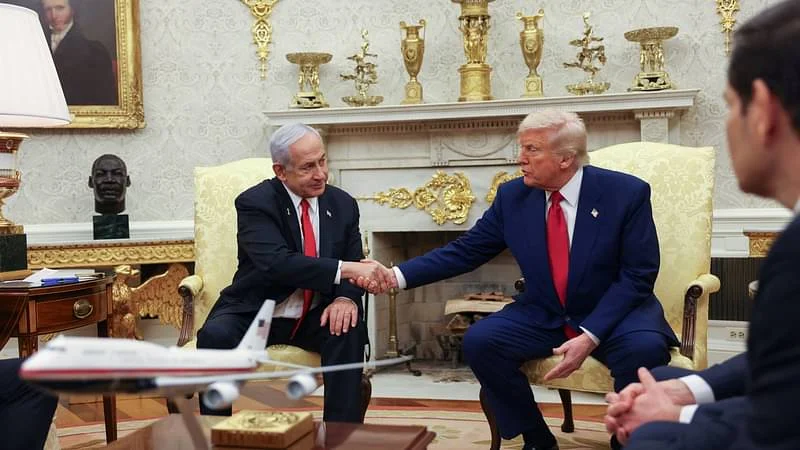
What Did Trump and Netanyahu Discuss in Their Latest Phone Call?
In a recent exchange that has piqued the interest of political observers, U.S. President Donald Trump and Israeli Prime Minister Benjamin Netanyahu claimed to be on the "same side of every issue" following a phone conversation. This interaction marks a significant moment in U.S.-Israeli relations as both leaders navigate complex global challenges.
The phone call, which occurred on April 22, 2025, was their first dialogue since Netanyahu's visit to Washington, D.C., two weeks earlier. While the details of their discussion remain largely under wraps, Trump took to his social media platform, Truth Social, to share that the conversation was productive and spanned several critical topics, including trade agreements and the tense situation with Iran.
Trump stated, "The call went very well," a sentiment that may soothe some concerns regarding the state of their bilateral ties. However, critics have pointed out that the dynamics of their relationship may be changing. Unlike their previous meeting in February—which was characterized as a success for Israel—the conversation after Netanyahu's April visit was reportedly less fruitful.
Despite Trump's claims of unwavering support for Israeli policy regarding Hamas in Gaza, he notably maintained the 17% tariffs imposed on Israel. This decision raises questions about the U.S.'s commitment to Israel's economic interests amidst growing geopolitics. Furthermore, a recent report by The New York Times reveals that Trump blocked a planned Israeli military strike on Iranian nuclear facilities in favor of pursuing diplomatic negotiations with Iran on its nuclear program. This unexpected move reportedly influenced Netanyahu's earlier visit to Washington and further complicates the U.S.-Israel relationship.
As the conversation highlights the delicate balance of support and negotiation between the two leaders, analysts are left wondering: How will these dynamics shape the future of U.S.-Israeli collaboration? The perceived solidarity in Trump's statements contrasts sharply with the underlying tensions, particularly in regard to Iran and the Palestinian territories.
In summary, while Trump and Netanyahu profess mutual support during their calls, the real implications of their discussions might signal a shift in American foreign policy. As both leaders face mounting internal and external pressures, the coming weeks could reveal the true nature of their partnership.
What do you think about Trump's approach to Israel and Iran? Will it hold up in the face of growing challenges? We invite you to share your thoughts in the comments below.